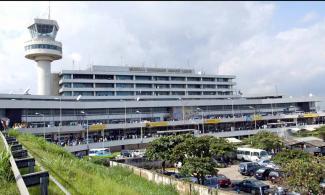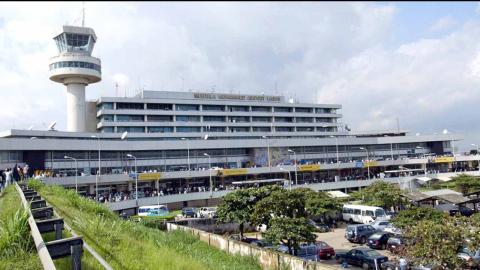
One of the leading unions in the sector, the Air Transport Services Senior Staff Association of Nigeria (ATSSSAN), alleged that the airlines are being used by some in the sector to thwart the efforts of the agencies to achieve financial solvency.
Domestic airline operators in Nigeria have been accused of conspiring to kill the aviation agencies by intentionally withholding the 5 percent Ticket and Cargo Sales Charge (TSC) meant for the parastatals.
One of the leading unions in the sector, the Air Transport Services Senior Staff Association of Nigeria (ATSSSAN), alleged that the airlines are being used by some in the sector to thwart the efforts of the agencies to achieve financial solvency.
ATSSSAN President Ahmadu Illitrus made this accusation on Sunday in an interview with aviation journalists in Lagos.
According to him, the umbrella body of the airlines in the country, Airline Operators of Nigeria (AON), intentionally misled the public when it accused the Nigerian Civil Aviation Authority (NCAA) of siphoning domestic operators through the collection of the 5 percent TSC.
Mr. Illitrus said that the airlines had not been transparent enough with their charges and remittances and questioned why a fuel surcharge would be higher than the base airfare, which he said they always peg at just N3,000 while the fuel surcharge is always around N19,000.
Agencies statutorily recognized in the 5 percent TSC apart from the NCAA are the Accident Investigation Bureau (AIB), Nigerian Airspace Management Agency (NAMA), Nigerian Meteorological Agency and Nigerian College of Aviation Technology (NCAT).
Mr. Illitrus insisted that the International Civil Aviation Organisation (ICAO) recognized that whatever charges that were to be deducted should be taken from the total fare and not the base fare as canvassed by the AON, noting that their refusal to remit the charges, which have already been collected from air travelers, was criminal.
He insisted that the federal government and the aviation agencies are not draining the airlines but instead that the airlines’ refusal to remit the appropriate funds over the past several years has cost the agencies N15 billion as of December 2016.
Mr. Illitrus also condemned the call for the cancellation of the 5 percent TSC in some quarters, saying that this would affect the financial autonomy of the NCAA and could lead to political interference in the running of the agency.
“Financial autonomy is a key requirement for autonomy of the Civil Aviation Authorities (CAAs). It has been established that political interference in the operation of a CAA is most visible in jurisdictions where the CAAs depends on subventions from the government. On the other hand, the CAAs have fared better where they are financially independent,” he explained.
“If we may ask, in what way has the regime of the 5% TSC affected negatively the operation or survival of Nigerian indigenous airlines who actually collect the charge from passengers and pocket it? Today, domestic airlines have illegally coveted over N15 billion 5% TSC.
“The international ticket coupons generated by the International Air Transport Association (IATA) for tickets sold in naira and in the US dollar in Nigeria showed that the 5% TSC for both sales were based on the total cost of the ticket that is inclusive of fuel surcharge and base fare.”
The union leader further stated that if the AON had another source of funding for the NCAA considering the current lean finances of the federal government and the enormous safety and security responsibilities conferred on it, the union would not kick against such an idea and challenged the body to come out with a better alternative.
He said that domestic operators were used to having their ways under previous governments in Nigeria, but noted that the tide had changed and they are no longer comfortable with the current arrangement, which insists on transparency and accountability.
Mr. Illitrus advised the AON executive against chastising aviation agencies for putting in place measures to recover debts and instead enjoined the body to be bold enough to admit wrong doings from its members.
“Since the commencement of operations in 2000, the NCAA has invested huge resources in the development of enabling a legal and regulatory framework to ensure safe, secure and economically sound civil aviation sector in Nigeria.
“It therefore attributes the demise of airlines in the country to poor capitalization, lack of good corporate governance, absence of local maintenance/repair facilities, and absence of infrastructures to enable 24 hour flight operations into some aerodromes amongst others,” he concluded.
